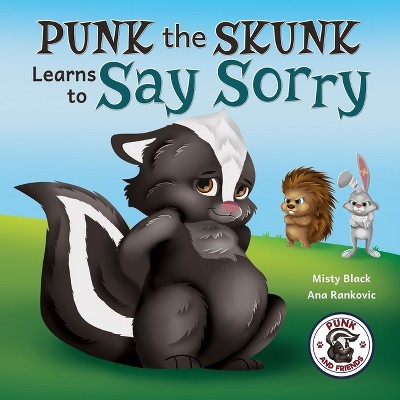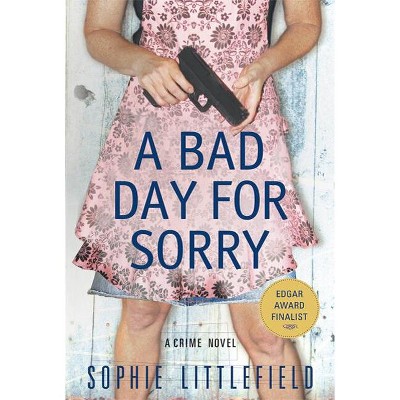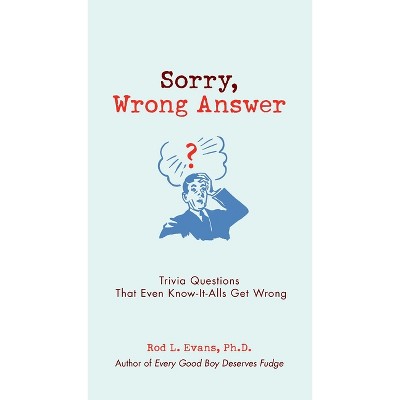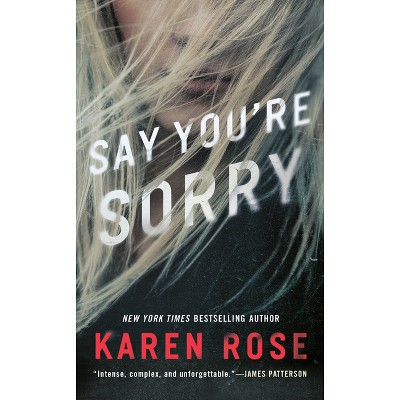Sponsored

Better Safe Than Sorry - by Norah Mackendrick (Paperback)
$29.95
In Stock
Eligible for registries and wish lists
Sponsored
About this item
Highlights
- How toxic are the products we consume on a daily basis?
- About the Author: Norah MacKendrick is Assistant Professor of Sociology at Rutgers University.
- 272 Pages
- Social Science, Women's Studies
Description
About the Book
"How toxic are the products we consume on a daily basis? Whether it's triclosan in toothpaste, formaldehyde in baby shampoo, endocrine disruptors in water bottles, or pesticides on strawberries, consumers are increasingly concerned about the chemicals in their food and personal care products. This book chronicles how ordinary people try to avoid exposure to toxics in grocery store aisles using the practice of 'precautionary consumption.' Through an innovative analysis of environmental regulation, the advocacy work of environmental health groups, the expansion of the health-food chain Whole Foods Market, and interviews with consumers, Norah MacKendrick ponders why the problem of toxics in the U.S. retail landscape has been left to individual shoppers--and to mothers in particular. She reveals how precautionary consumption, or 'green shopping,' is a costly and time-intensive practice, one that is connected to cultural ideas of femininity and good motherhood but is also most available to upper- and middle-class households. Better Safe Than Sorry powerfully argues that precautionary consumption places a heavy and unfair burden of labor on women and does little to advance environmental justice or mitigate risk."--Provided by publisheBook Synopsis
How toxic are the products we consume on a daily basis? Whether it's triclosan in toothpaste, formaldehyde in baby shampoo, endocrine disruptors in water bottles, or pesticides on strawberries, chemicals in food and personal care products are of increasing concern to consumers. This book chronicles how ordinary people try to avoid exposure to toxics in grocery store aisles using the practice of "precautionary consumption." Through an innovative analysis of environmental regulation, the advocacy work of environmental health groups, the expansion of the health-food chain Whole Foods Market, and interviews with consumers, Norah MacKendrick ponders why the problem of toxics in the U.S. retail landscape has been left to individual shoppers--and to mothers in particular. She reveals how precautionary consumption, or "green shopping," is a costly and time-intensive practice, one that is connected to cultural ideas of femininity and good motherhood but is also most available to upper- and middle-class households. Better Safe Than Sorry powerfully argues that precautionary consumption places a heavy and unfair burden of labor on women and does little to advance environmental justice or mitigate risk.From the Back Cover
"Better Safe Than Sorry takes on the timely question of how consumers understand and make decisions about the daily chemical exposures we face. Weaving together a rich explanation of the complex evolution of chemical regulation with an empathetic exploration of individual collective strategies to mitigate risk, Norah MacKendrick makes an important contribution to our understanding of this significant issue, which lies at the intersection of science, environmentalism, parenting, corporations, and public health."--Jennifer A. Reich, author of Calling the Shots: Why Parents Reject Vaccines "This is a unique examination of policy and regulation, the environmental health movement, and corporate and individual responses to chemical contamination in food and personal care products. It's a fresh look at how people put excessive effort into reading labels and buying products that provide them with less toxic exposure and healthier lives, while the corporate structure is so powerful and the regulatory framework so weak that individual efforts are never enough. MacKendrick weaves together environmental sociology, gender studies, popular culture, environmental studies, and social movements while highlighting the centrality of gender in 'precautionary consumption.'"--Phil Brown, author of Toxic Exposures: Contested Illnesses and the Environmental Health Movement "MacKendrick proves why the supermarket, the pantry, and even the label on your lotion are objects of sociological investigation as critical and consequential as the street corner, the newsstand, and the operating room. This book is growing more relevant, more urgent by the minute."--Rebecca Altman, writer and sociologist "Well researched and beautifully written, Better Safe Than Sorry shows how 'precautionary consumption' is a logical but inadequate response to a regulatory system that has failed consumers and the environment. By showing how strategies like reading labels and choosing ecofriendly products perpetuate inequalities, this book makes critical contributions to our understanding of consumption, risk, and environmental regulation."--Sarah Bowen, author of Divided Spirits: Tequila, Mezcal, and the Politics of ProductionReview Quotes
"Better Safe than Sorry is a richly evidenced, engagingly written account of a phenomenon of central interest to sociologists studying health, gender, social movements, political consumption, and the environment. MacKendrick has provided readers with a definitive account of precautionary consumption, theorizing this phenomenon in a way that connects macro- to microlevel social action. This work shows us how corporate control of government regulation renders the consumer marketplace a minefield of health risks and how gendered social discourses implicating mothers as the guardians of their families' well-being combine to create a practice that is financially, temporally, and emotionally draining: precautionary consumption."-- "American Journal of Sociology"
"The topic dealt within the book is timely and of great concern to post-modern consumers: how do we make our decisions when buying something that can affect our health? . . . It shows how the failure to apply the precautionary principle in the USA leads inexorably individual consumers alone to navigate complicate decisions about which products to buy, whilst widespread consumers' concern and uncertainty open spaces to be capitalised by the market actors on the promise of health and safety."-- "Review of Agricultural, Food and Environmental Studies"
"Examining everyday toxics from a variety of angles, MacKendrick's book is an impressive analysis of how many of us shop today, why we do so, and what we can do to achieve greater equality."-- "New Books Network" (7/19/2018 12:00:00 AM)
About the Author
Norah MacKendrick is Assistant Professor of Sociology at Rutgers University.Dimensions (Overall): 8.9 Inches (H) x 5.9 Inches (W) x .8 Inches (D)
Weight: .85 Pounds
Suggested Age: 22 Years and Up
Number of Pages: 272
Genre: Social Science
Sub-Genre: Women's Studies
Publisher: University of California Press
Format: Paperback
Author: Norah Mackendrick
Language: English
Street Date: May 1, 2018
TCIN: 1006094650
UPC: 9780520296695
Item Number (DPCI): 247-37-3316
Origin: Made in the USA or Imported
If the item details aren’t accurate or complete, we want to know about it.
Shipping details
Estimated ship dimensions: 0.8 inches length x 5.9 inches width x 8.9 inches height
Estimated ship weight: 0.85 pounds
We regret that this item cannot be shipped to PO Boxes.
This item cannot be shipped to the following locations: American Samoa (see also separate entry under AS), Guam (see also separate entry under GU), Northern Mariana Islands, Puerto Rico (see also separate entry under PR), United States Minor Outlying Islands, Virgin Islands, U.S., APO/FPO
Return details
This item can be returned to any Target store or Target.com.
This item must be returned within 90 days of the date it was purchased in store, shipped, delivered by a Shipt shopper, or made ready for pickup.
See the return policy for complete information.
Trending Non-Fiction


$19.31
was $20.98 New lower price
Buy 1, get 1 50% off select books & accessories
4 out of 5 stars with 57 ratings

$19.58
MSRP $29.00
Buy 1, get 1 50% off select books & accessories
4.6 out of 5 stars with 12 ratings

$4.59
MSRP $7.99
Buy 1, get 1 50% off select books & accessories
4.8 out of 5 stars with 118 ratings

$6.20
MSRP $10.95
Buy 1, get 1 50% off select books & accessories
4.8 out of 5 stars with 33 ratings

$7.09
MSRP $9.99
Buy 1, get 1 50% off select books & accessories
4.9 out of 5 stars with 45 ratings
Discover more options
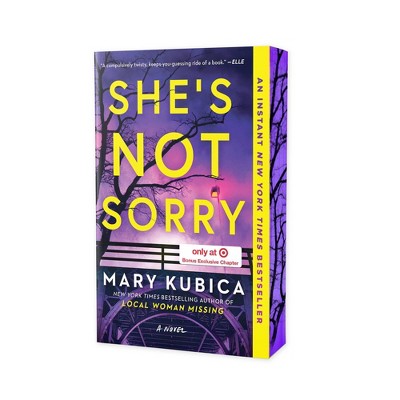
$15.19
Buy 1, get 1 50% off select books & accessories
4.4 out of 5 stars with 10 ratings
